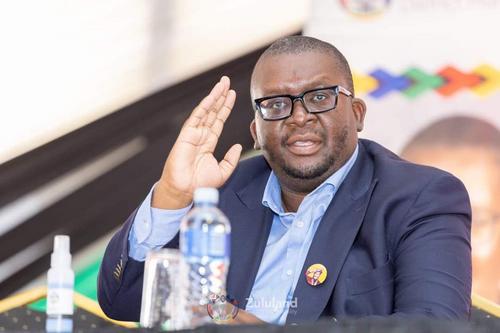News
KZN’s Amakhosi Pension Plan Sparks Confusion, Pushback and Political Tension

A Promise, a Pushback, and a Paper Trail: Inside the Amakhosi Pension Saga
A plan to introduce pensions for Amakhosi in KwaZulu-Natal was meant to be a triumph for traditional leadership. Instead, it’s becoming a political and regulatory tangle that has South Africans asking one question: who exactly approved what?
Earlier this month, KZN’s Department of Cooperative Governance and Traditional Affairs (Cogta) publicly announced that a dedicated pension fund for Amakhosi had been approved by the Financial Sector Conduct Authority (FSCA). The department’s messaging was bold this was about restoring dignity, securing the retirement of traditional leaders, and putting them on par with other public office-bearers.
But just days later, the FSCA publicly contradicted that claim.
Two Stories, One Fund
Cogta insists the “KZN CoGTA Pension Fund for Amakhosi” got the green light. MEC Thulasizwe Buthelezi doubled down during a committee briefing, telling legislators that all regulatory hurdles had been cleared and that implementation was imminent.
“We welcome the FSCA’s approval… this is a significant breakthrough,” he said, framing the fund as part of a long-overdue effort to “liberate and empower” traditional leadership.
Behind the scenes, Cogta even pointed to a confidential FSCA letter dated 7 October confirming a pension fund registration. That letter, seen by The Mercury, references the registration of a fund under the name “Cooperative Governance and Traditional Affairs KZN.”
But when journalists followed up with the FSCA using the registration number supplied the explanation took a sharp turn.
According to the regulator, the number does not refer to any pension fund for Amakhosi. Instead, it reflects Cogta’s status as a participating employer in an existing corporate umbrella pension fund. In short: employees of the department qualify, not traditional leaders.
“No mention is made of Amakhosi in the rules or documentation that the FSCA has at its disposal,” the regulator stated.
What Exactly Is Being Promised?
South Africa has grappled with the question of how to compensate traditional leaders fairly without sparking backlash from already strained public budgets. Amakhosi are paid stipends but do not currently have the kind of retirement benefits that senior state officials enjoy.
Cogta billed the pension fund plan as a “structured savings mechanism” designed to secure the legacy and social standing of Amakhosi after retirement. It’s a politically attractive move but how it will be funded remains unclear.
Critics worry the scheme could drain provincial resources or create legal complications if not handled transparently.
A Committee Divided
The uncertainty has also caused friction within Cogta’s own oversight structures.
During a recent committee sitting, chairperson Marlaine Nair found herself on the defensive after issuing a statement questioning the affordability of the pension plan. Some committee members claimed they were blindsided and accused her of embarrassing traditional leaders.
Nair pushed back, saying scrutiny is not disrespect. She argued that rather than relying on the state, Amakhosi should also be supported to unlock economic value from communal land.
“It’s our duty to ask difficult questions,” she said, insisting that financial independence not political appeasement should be the long-term goal.
Public Reaction: Suspicion and Support Collide
On the ground, reaction has been mixed. Some traditional leaders see the pension plan as overdue recognition. Others are wary of political promises made without clarity on cost, eligibility, or legal standing.
Social media chatter has zeroed in on two issues:
-
Transparency: If this is a new fund, where’s the application and approval record?
-
Priorities: With service delivery in crisis, can the province afford another financial obligation?
Some users even joked that the pension plan “exists more on paper than in treasury.”
So, What Happens Now?
For now, the MEC is sticking to his guns. The FSCA is standing by its denial. And the public is left trying to decode legal fine print and political messaging.
Here’s what’s still unresolved:
-
Has any standalone pension fund for Amakhosi actually been registered?
-
Will the current umbrella fund structure be amended to include traditional leaders?
-
Who will pay for it the province, national government, or the leaders themselves?
-
And critically: was this a communication mix-up, or premature politicking?
Until those answers emerge, one thing is certain this debate has moved beyond administrative semantics. It has become a test of trust between government, traditional authorities, and the institutions meant to regulate public money.
If Cogta wants legitimacy on this issue, it needs more than letters and speeches. It needs clarity, costings, and a plan that matches the promise.
{Source: IOL}
Follow Joburg ETC on Facebook, Twitter , TikTok and Instagram
For more News in Johannesburg, visit joburgetc.com



























